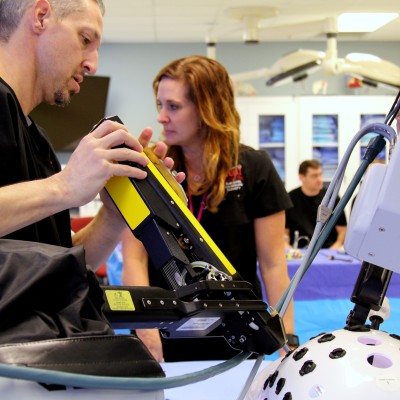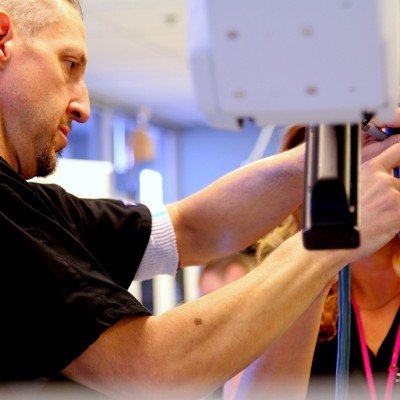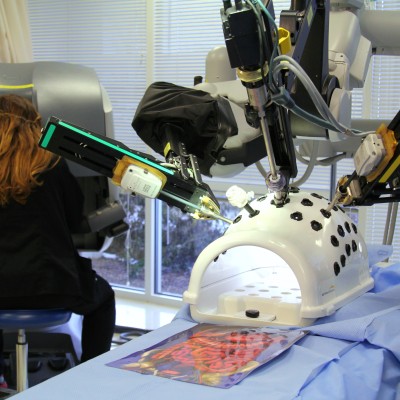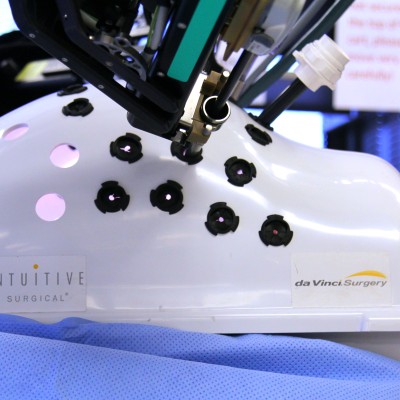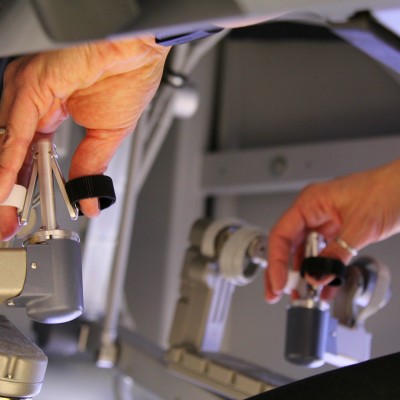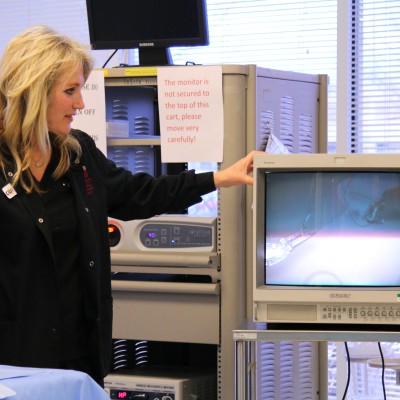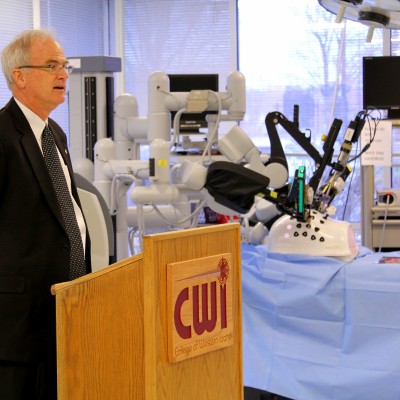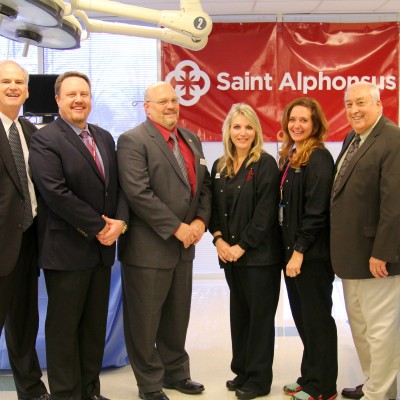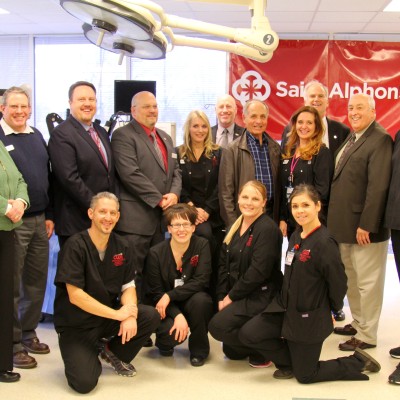Bert's Alerts - January 15, 2016
In the Spotlight
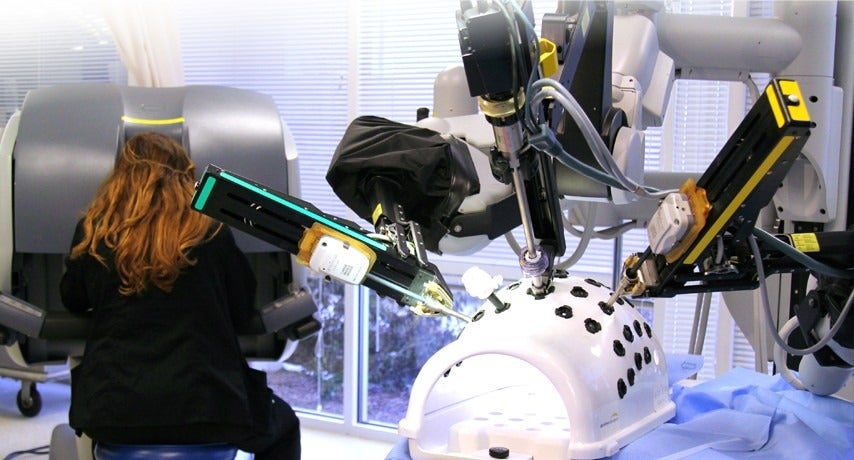
On Thursday, Jan. 14, College of Western Idaho (CWI) introduced a major technology donation from Saint Alphonsus Regional Medical Center. CWI hosted a recognition event at the Ada County Campus to showcase a da Vinci Surgical System that will be used to teach students in the College’s Surgical Technology program. The machine was used in the Saint Alphonsus surgery center for the past decade. For more details, read the full announcement below.
CWI in the News
Saint Alphonsus donates surgical robot to CWI - KTVB
CWI disaster training a positive step - Idaho Press-Tribune, Opinion
Seven students go above and beyond, receive associates degrees when graduating high school - Idaho State Department of Education, Press Release
News Highlights
Saint Alphonsus Donation Brings Cutting-Edge Technology to CWI
Saint Alphonsus Regional Medical Center in Boise has donated a da Vinci Robotic Surgical System to the College of Western Idaho's (CWI) Surgical Technology program. The system allows surgeons to perform complex surgical procedures through the use of an interactive robot with instrument arms, and 3D HD cameras that provide a magnified view from inside the body.
The da Vinci Surgical System, which was used at Saint Alphonsus Regional Medical Center in Boise for the past decade, will now be used to teach students in CWI’s Surgical Technology program. When purchased new, a da Vinci Surgical System costs around $2 million. The advanced technology is used in operating rooms around the world in a wide variety of practices including cardiology, general surgery, gynecology, pediatrics, and urology.
“This is exciting for students and instructors,” says Mona Bourbonnais, CWI’s Surgical Technology program chair. “Typically our students are not exposed to this technology until they enter a clinical site. By having this technology in our lab, students will have a valuable opportunity to become familiar with it prior to their clinical rotations.”
“It was important for us to donate the machine to the College because we work directly with CWI students,” said Brenda Shaw, general vascular coordinator at Saint Alphonsus. “The da Vinci will be a great learning tool, as students will be able to practice on the technology first-hand before they are hired to work in the hospital setting.”
According to Intuitive Surgical, the company that makes the da Vinci, the original prototype was developed in the late 1980s. The U.S. Army contracted the former Stanford Research Institute to develop a system that could be used to perform remote battlefield surgeries. A decade later, the FDA cleared the way for commercial use. There are currently 2,344 machines installed in U.S. hospitals. They are located in all 50 states.
The CWI Surgical Technology program is currently accepting applications for the Fall 2016 semester. The deadline to apply to the program is March 18. Visit cwi.edu/program/surgical-technology for more information.
CWI Closed Jan. 18 for Martin Luther King Jr. Day
On Monday, Jan. 18, College of Western Idaho (CWI) will not hold classes in observance of Martin Luther King, Jr. Day. All campus buildings, offices, and services will also be closed. The College will resume its regular class schedule and operating hours on Tuesday (Jan. 19).
Program and Career Expo Returns to CWI
College of Western Idaho (CWI) will host its second annual technical program and career expo on Feb. 10, welcoming future students, community members, and education partners to explore CWI’s professional-technical programs. The event is open to the public and will run from 5-7 p.m. in CWI’s Micron Center for Professional Technical Education in Nampa. Program labs will be open for tours, refreshments will be served, and faculty, advisors, and industry representatives will be on-site to help with:
- Hands-on activities
- Demonstrations by program faculty
- College Readiness Tips
Event Details
- Wednesday, Feb. 10
- 5-7 p.m.
- Nampa Campus Micron Center for Professional Technical Education
5725 E. Franklin Rd., Nampa – View Map
Classes Lead to Lifestyle Change for CWI Student
In the Fall 2015 semester, a group of College of Western Idaho (CWI) Biology students had the opportunity to evaluate their impact on the environment. Molly Wolk's science, literature, and environment class was assigned a lifestyle analysis project that required students to track their activity in two of the following categories: electricity, water, heating/cooling, driving/fuel consumption, and the locality of food. One student saw the project as more than another homework assignment. It was perfect timing for him to experiment with a lifestyle change.
David Draper chose to analyze his impact in all categories, while also adding a category of his own; participation in a system of goods and services. The second week he rode a bike everywhere and ate only wild foods that he harvested. In an effort to further reduce his carbon footprint he constructed and moved into a yurt, which has no heat, electricity, or running water; although Draper did still have access to a house for personal hygiene needs.
The idea of constructing and living in a yurt had been in the works for a while. He says the lifestyle analysis project just happened at the right time. He was introduced to passive solar energy in a biology class a few semesters ago. Draper says he began contemplating an experiment utilizing the same techniques.
The yurt was built in a way that optimizes sun exposure and retains the heat absorbed. The walls are made up of two layers of 3mm thick black plastic (due to its low albedo) with a one inch air gap between them. The roof is set at an angle that maximizes surface area while still being able to shed water effectively. He made the overall diameter nine feet because he needed to make it as small an area as possible, for heat retention, while still accommodating his needs.
"Honestly this experience has been liberating," says Draper. "It has put things into perspective as far as what my basic necessities are. People often talk about the need to 'unplug' from time to time but living that way is truly fulfilling- at least it is for me."
Prior to the analysis Draper tried to live conscientiously, eating wild foods on a regular basis and riding his bike more often than not. He says the transition into the yurt felt organic. Draper still lives in the yurt and since the project he has put more emphasis on riding his bike rather than taking the bus.
"This experience has been wonderful. I would encourage everyone to take this class as well as Gary Heller's environmental science class regardless of their degree pathway. Many people never take the time to learn about these topics or take the journey of meta-cognition when it comes to humanities place in the biosphere. Both Molly and Gary teach these concepts exceptional well and I thank and applaud them.”
Read David's Complete Analysis
Bookstore Offers Back to School Sale
The College of Western Idaho (CWI) Bookstore is celebrating the start of the spring semester with a Back to School Sale. Now through Jan. 22, all apparel at the Bookstore is 25 percent off. The offer is only valid in store. Visit cwi.edu/bookstore for location details and hours of operation.
Facilities Management Formalizes Snow Removal Procedure
In an effort to formally document snow removal procedures and provide the College of Western Idaho (CWI) community with snow removal expectations, CWI’s Facilities Planning and Management department has documented its Snow and Ice Removal Program. Snow will be removed from campus roads, parking lots, and sidewalks based on the guidelines defined in the new document.
Please take a moment to review the Standard Operating Procedure Snow and Ice Removal Program, which can be found on the Facilities Management page on myCWI. All questions can be directed to Facilities Planning and Management at 208.562.3545.
HR Updates
Employment Opportunities
Human Resources has announced new job postings at CWI this week, which are listed below. Employees can access internal job postings by visiting cwinternal.silkroad.com/ or view all external listings on cwijobs.silkroad.com. Jobs are posted as they open throughout the week.
January 10-16
Administrative Assistant I
Note: This is the official communication newsletter for the College. Content is driven by contributions gathered from all areas of CWI. If you have news you would like to submit for this, please use a Marketing Help Desk ticket.

